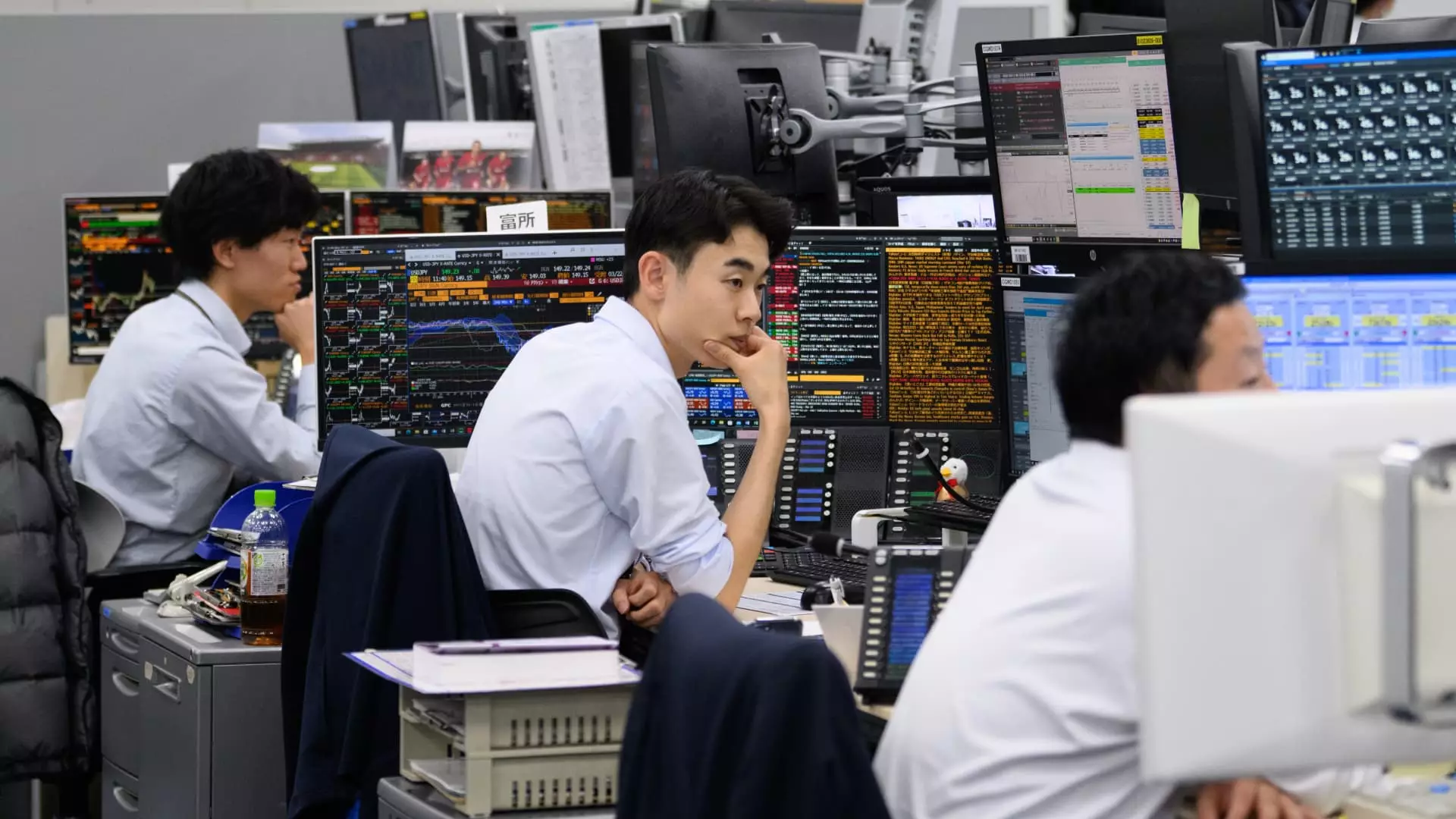The Asia-Pacific markets experienced a decline on Monday as traders started to assess the consequences of Iran’s significant drone and missile attacks on Israel over the weekend. President Joe Biden characterized the attack as “unprecedented”, which led to a heightened sense of uncertainty among investors. The U.S. intervened to help Israel intercept most of the incoming munitions, but the market remained cautious as geopolitical tensions escalated.
Traders are closely monitoring the upcoming economic data releases from China and Japan, which are expected later in the week. China is set to announce its first-quarter GDP numbers on Tuesday, while Japan will reveal its March trade data and inflation numbers on Wednesday and Friday, respectively. These reports will provide valuable insights into the economic health of these major Asian economies and could potentially impact market sentiment moving forward.
Japan’s Nikkei 225 and the broad-based Topix index both experienced losses, with the Nikkei falling 1.278% and the Topix down 0.76%. South Korea’s Kospi and the small-cap Kosdaq also slid by 1.19% and 1.55% respectively. Meanwhile, Australia’s S&P/ASX 200 saw a smaller decline of 0.67%. Hong Kong’s Hang Seng index was down by 1.5%, while mainland China’s CSI300 index surprisingly gained nearly 1%. This mixed performance reflects the uncertainty and volatility in the market following the geopolitical tensions caused by Iran’s attacks.
Despite the geopolitical concerns in the Asia-Pacific region, U.S. stock futures showed some positive movement on Sunday. Investors are grappling with the aftermath of Iran’s attacks and the recent spike in equity market volatility, which resulted in the Dow Jones Industrial Average posting its worst week of the year. Futures tied to the Dow Jones Industrial Average rose by 90 points, S&P 500 futures added 0.2%, and Nasdaq-100 futures advanced 0.3%. Gold futures, which had reached record levels last week, pulled back slightly to $2,373 an ounce. The precious metal has seen a 15% increase in value this year as investors seek safe-haven assets amidst rising inflation and geopolitical tensions.
The Asia-Pacific markets are facing a period of uncertainty and volatility as traders grapple with the repercussions of Iran’s attacks on Israel. Economic data releases from major countries in the region will likely provide further insight into the market’s direction. Investors are advised to closely monitor geopolitical developments and economic indicators to make informed decisions in this challenging environment.

Leave a Reply